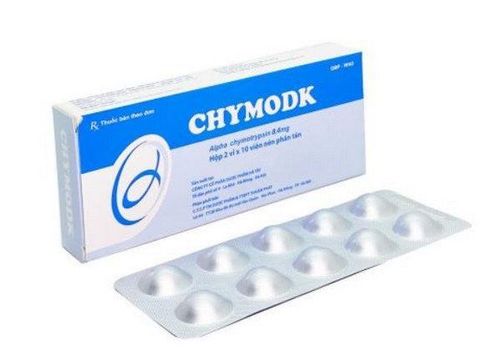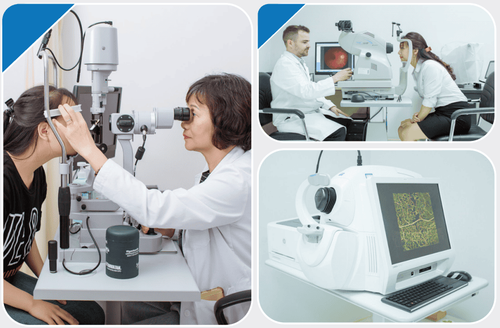This is an automatically translated article.
The article was professionally consulted by an eye doctor - Department of Medical Examination & Internal Medicine - Vinmec Hai Phong International General HospitalCataracts are the second leading cause of blindness after cataracts. Celiac disease is a dangerous disease that can cause permanent vision loss, but if detected and treated early, it can slow down the progression of the disease.
1. What is Celiac Disease?
Celiac disease is also known as glaucoma or glaucoma. The disease usually appears in middle-aged people, but children and young people can still get the disease. In patients with migraine, pressure in the eye increases, leading to damage to the optic nerve. If not treated early, the optic nerve is more severely damaged and causes permanent vision loss.2. The cause of the disease of the head
Currently, the cause of schizophrenia has not been determined, below is a list of subjects at high risk of the disease:Having a close relative with schizophrenia (Genetic factors) Using drops have long-term corticosteroid components Pathological complications such as high blood pressure, diabetes, eye injuries People with small eyeballs such as severe farsightedness, small corneas or people who are anxious and easily emotional People who measure eye pressure over 25 mmHg Over 35 years old. The older you are, the greater your chance of developing glaucoma. Women are twice as likely to have glaucoma as men.
3. Symptoms of Celiac Disease
The disease usually has a sudden onset in the evening, when the patient is reading a book or during a strong emotional attack. Warning symptoms of migraine include:Severe eye pain, pain spreading to the same side of the head. Eyes tight, ie Blurred vision, you can see fog in front of your eyes, your vision is narrowed Tears, red eyes Touching the eyes, the eyeballs are tight. The cornea is edematous, cloudy. Dull, aching headache. Nausea, vomiting, loss of appetite. Fear of light, fear of sound.

Đau đầu nhức mắt dữ dội có thể là triệu chứng cảnh báo của bệnh thiên đầu thống
4. How to prevent and treat schizophrenia
4.1 Treatment of schizophrenia Currently, there is no cure for schizophrenia. The goal of treatment is to slow the progression of the disease and limit damage to the optic nerve. Depending on the stage of the disease, treatment with medication, laser or surgery may be required.Some glaucoma medications are on the market: pilocarpine 1%, 2%, Timolol 0.25%, 0.5%, betoptic S, alphagan P, travatan 0.004%, lumigan, azopt, acetazolamide 250mg , glycerol, mannitol... These drugs can cause many side effects, so patients should not use them indiscriminately but must strictly follow the doctor's instructions.
Currently, there are 3 common surgical methods to treat spondylolisthesis:
Trabeculectomy of the cornea, Implantation of the drainage tube, Laser surgery for glaucoma, each method has its own advantages and disadvantages. Depending on the characteristics of each patient, the doctor will prescribe the appropriate surgical method. There are cases of patients who have undergone surgery but the disease recurred. Therefore, patients should not be subjective but need periodic health check-ups for doctors to advise and monitor.
Correct and timely treatment helps stabilize intraocular pressure without damaging the optic nerve. The ophthalmologist will base on the morphology of the disease to treat it surgically or medically.
4.2 Prevention of head and neck diseases

Bệnh nhân bị cao huyết áp nên đi khám định kỳ để phát hiện bệnh
Please dial HOTLINE for more information or register for an appointment HERE. Download MyVinmec app to make appointments faster and to manage your bookings easily.













